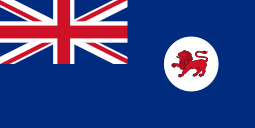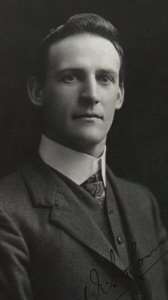Tasmanian state election, 1913
Tasmanian state election, 1913

|
|
|
|
|
|
|
A general election for the House of Assembly was held in the Australian state of Tasmania on 23 January 1913 (a Thursday, as the convention of holding elections on a Saturday did not become common until the 1920s).
Background
The 1913 election was called less than a year after the previous election in 1912, triggered by an early dissolution of parliament. The Liberals held only a small majority in the House of Assembly, and Premier Albert Solomon was dependent on the support of Norman Cameron to maintain that majority. In addition, Solomon was under threat from the same Liberal unrest that had unseated his predecessor, Sir Elliott Lewis. Labor sought to capitalise on Solomon's tenuous grasp on government, and moved a series of no-confidence motions against him, including a censure motion over the Mount Lyell disaster. In an attempt to secure his position, Solomon requested an early dissolution from the Governor of Tasmania, and an early election was called.[1]
Results
|
Tasmanian state election, 23 January 1913
House of Assembly
<< 1912 — 1916 >> |
| Enrolled voters |
105,292 |
|
|
| Votes cast |
70,802 |
|
Turnout |
67.24% |
–6.23% |
| Informal votes |
2,035 |
|
Informal |
2.87% |
+0.02% |
| Summary of votes by party |
| Party |
Primary votes |
% |
Swing |
Seats |
Change |
| |
Liberal |
36,157 |
52.58% |
–1.90% |
16 |
+ 1 |
| |
Labor |
31,633 |
46.00% |
+0.48% |
14 |
± 0 |
| |
Independent |
977 |
1.42% |
+1.42% |
0 |
– 1 |
| Total |
68,767 |
|
|
30 |
|
Distribution of Seats
Aftermath
Solomon achieved what he had hoped by calling an early election: Norman Cameron lost his seat which was picked up by the Liberals, giving them a more favourable two-seat majority in the house. This advantage, however, was short-lived. The Liberals lost a seat in a by-election, and the erratic behaviour of MHA Joshua Whitsitt was coming under question. Solomon lost a no-confidence motion in April 1914, and the Governor denied his request for another dissolution, calling upon John Earle to form a Labor government.[1]
See also
References
External links

.jpg)